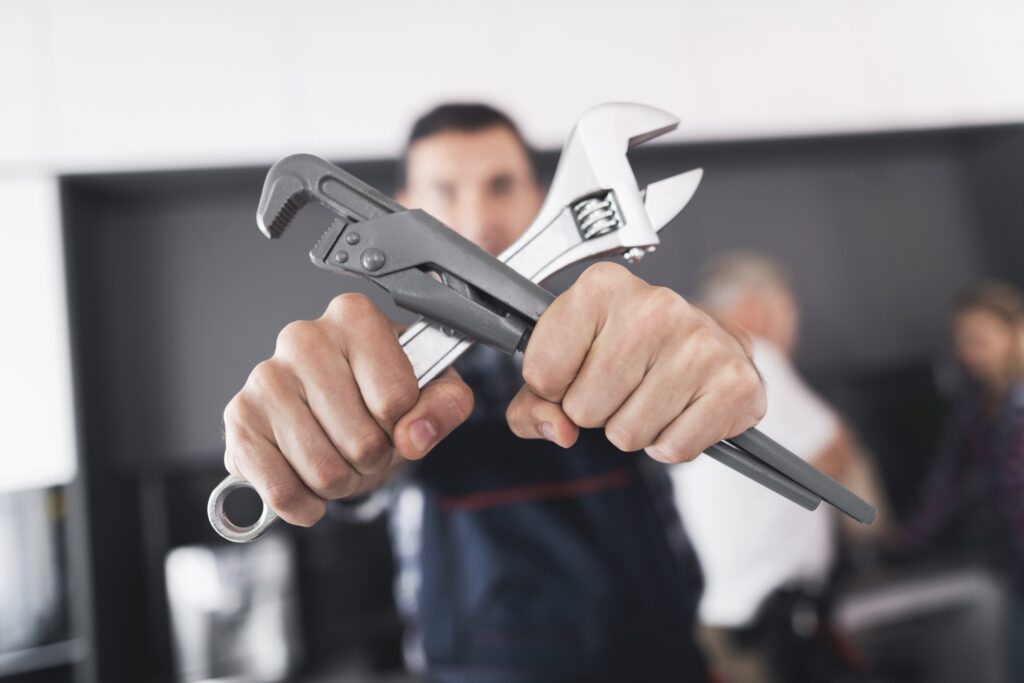Property maintenance is one of the most important aspects of being a landlord in the UK. Beyond ensuring tenant comfort, it protects your investment and keeps you compliant with legal standards. Failing to maintain your property properly can lead to costly repairs, legal issues, and dissatisfied tenants who may leave negative reviews or file complaints.
This guide delves deeper into the top five property maintenance tips for UK landlords, with additional insights into legal requirements and practical examples to help you navigate the complex world of property management.

Tenants expect a home that is safe, functional, and comfortable. A poorly maintained property not only jeopardizes their safety but also damages your reputation as a landlord.
Neglected maintenance can lead to long-term damage, such as structural issues, damp problems, or mold infestations. These can significantly reduce your property’s value and rental potential.
Under UK law, landlords must meet various maintenance and safety obligations, including those outlined in:
Regular property inspections allow landlords to spot potential problems early. For instance:
Landlords must provide tenants with at least 24 hours’ notice before visiting and conduct inspections during “reasonable hours.” Tenants have the right to deny access if proper notice is not given, emphasizing the need for clear communication.
Landlords are required to:
Electrical safety is equally critical. Landlords must:
The Minimum Energy Efficiency Standards (MEES) require rental properties to have an EPC rating of E or higher. Failure to meet these standards can result in fines up to £5,000.
Tip: Upgrade to energy-efficient heating systems and double-glazed windows to meet compliance while reducing tenants’ energy bills.
Pest infestations can cause significant damage to your property and tenant dissatisfaction. Preventative steps include:
In the UK, pest control responsibility depends on the cause:
For single-family homes, landlords are generally responsible for structural garden maintenance, while tenants handle day-to-day care like mowing the lawn. Ensure pathways are clear, fences are intact, and trees are pruned to avoid safety hazards.
For landlords of multi-unit buildings, shared spaces such as hallways, staircases, and parking areas must be maintained.
Having access to dependable electricians, plumbers, and handymen ensures swift resolution of issues. For example, partnering with a trusted plumber can prevent delays during emergencies.
Digital tools like Landlord Vision or Arthur Online can help track maintenance schedules, automate reminders for safety checks, and manage repair requests.
Landlord laws in the UK frequently change. Subscribing to updates from organizations like the National Residential Landlords Association (NRLA) can help you stay compliant.
Maintaining a rental property in the UK is a balance of legal compliance, proactive care, and tenant satisfaction. By following these top tips—conducting regular inspections, ensuring safety standards, preparing for seasonal needs, preventing pests, and managing shared spaces—you can protect your investment and foster positive landlord-tenant relationships.
Remember, proactive maintenance not only saves money but also ensures your property remains an attractive and safe home for tenants.
1. What maintenance issues are landlords legally responsible for?
Landlords must handle structural repairs, gas and electrical safety, heating, plumbing, and any hazards under HHSRS regulations.
2. Can tenants request emergency repairs?
Yes, tenants can report emergency issues like gas leaks or heating failures. Landlords must respond promptly, usually within 24-48 hours.
3. How can landlords handle disputes over maintenance?
Document all communication with tenants and ensure maintenance responsibilities are clearly outlined in the tenancy agreement. Mediation services like TDS Resolution can help resolve disputes.
4. Is landlord insurance necessary for property maintenance?
While not legally required, landlord insurance can cover unexpected repair costs, liability claims, and loss of rent during major repairs.
5. What penalties can landlords face for non-compliance?
Fines, legal disputes, and property bans are common penalties. For example, neglecting gas safety can result in fines up to £6,000 and criminal prosecution.
Exe-spand are specialists in all aspects of general building and property maintenance related works, for both private and commercial clients in Exeter, East Devon, Torbay and Somerset.
Phone: 01392 920142
Email: info@exespand.co.uk
Unit 1, Rosamond Farm, Exeter EX5 2JG, United Kingdom
Mon 9:00am – 5:00pm
Tue 9:00am – 5:00pm
Wed 9:00am – 5:00pm
Thr 9:00am – 5:00pm
Fri 9:00am- 5:00pm
Sat Closed
Sun Closed
Exespand are specialists in all aspects of general building and property maintenance related works, for both private and commercial clients in Exeter, East Devon, Torbay and Somerset.
Phone: 01392 920142
Email: info@exespand.co.uk
Unit 1, Rosamond Farm, Exeter EX5 2JG, United Kingdom
Mon 9:00am – 5:00pm
Tue 9:00am – 5:00pm
Wed 9:00am – 5:00pm
Thr 9:00am – 5:00pm
Fri 9:00am- 5:00pm
Sat Closed
Sun Closed